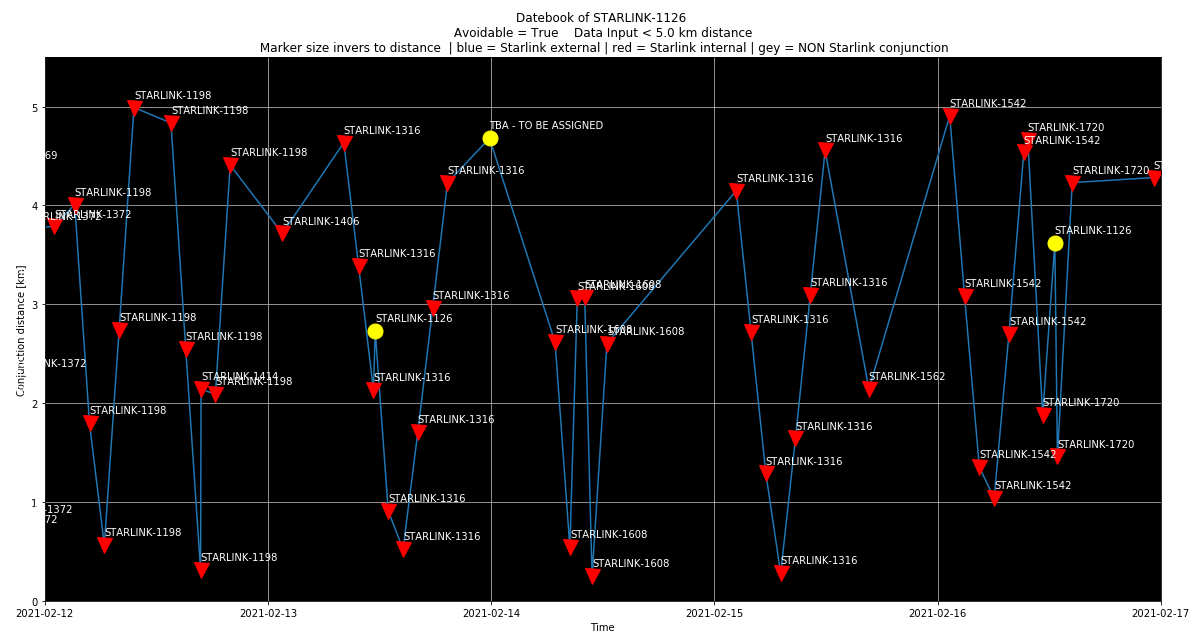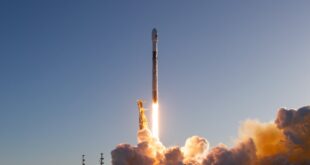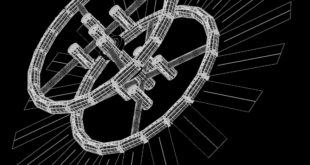by Valentin Eder
The actual (r)evolution in the Outer-Space usage brings also a socio-economic change not sufficiently discussed in the community.
In the discourse of risk in Outer-Space, the community keeps focusing mainly on risks resulting from space debris, and to some extent also discussing the potential impact from large constellations. The experts look at single event collision probabilities by measuring and calculating orbits – and upon crossing defined thresholds, the Spacecraft operators will fly a collision-avoidance manoeuvre. Huge activities are conducted around the topic of “space sustainability”, but with very limited success – for various reasons.
An exhausting number of slides has been shown over the past months, highlighting the benefits of actual and future missions and constellations. Private and governmental organisations are researching, developing and launching missions to reach different dreams including space tourism, settlements on Moon and Mars and/or Space Mining.
The global society has grown with the help of space services, the dependencies are widespread and significant. The dramatic vulnerability of the current space infrastructure is shown in a paper by the EU Institute for Security Studies dating from 15.April 2021[1]. A 5-day outage of GNSS services in the UK was investigated, and the findings draw a dystopic scenario. In a mid-May 2021 UNOOSA webinar session about “Development of Norms, Rules and Principles of Responsible Behaviour in Outer Space”, the economic impact of navigation services unavailability in the US and Europe was mentioned to be an estimated 6-7% of the GDP, and that still seems to be an extremely optimistic assumption. Other statements are talking about a one billion USD loss per day in the US only if GNSS is out of service.[2]
A scenario that is not sufficiently discussed at all is that of the global society permanently losing its current space services. We have but a rough idea of the chaos that awaits us in that case. Nevertheless, we choose to ignore it. This kind of a “Cognitive Dissonance regarding Space Activities” can be diagnosed in conjunction with a “Global Economy Space Addiction”. Today’s space community is closely accompanied by the financial markets, acting like under the influence of a big-money drug masking the risk of possible damage for the society. Also in this case – like in many other domains – the benefits are privatised, while the society is left with the risk and the damage (after the loss of the space services). And the political willingness and momentum to regulate the activities are far from being significant.
Even a small country like Austria which is not at all a major “space player” significantly depends on space services. Of course, even small countries have local companies dancing to the tune of the large “new space heroes”, generating valuable returns, mainly in their role as “hidden champions”. However, their tiny contribution to the GDP does not at all outweigh the expected negative impact when the space services become irreversibly unavailable.
Taking the example of SpaceX/Starlink services, the benefit for the Austrian society is limited and less than marginal. But by unconditionally accepting or even supporting these services, Austria would accept a risk increase in Outer-Space without having any benefit. Moreover, the country would actively contribute to this risk increase, while at the same time accepting that all profits are transferred to a private US entity which is in turn supported by the US government and US military. The local government/administration in Austria remains passive, like in a sort of silent acknowledgement. We leave it up to the reader to judge what prevents the administration from acting. The possibilities to regulate the issue on national and trans-national are manifold, reaching from RF regulations to sanctions against entities dealing with such high-risk service providers. It is feasible and almost common practice today to set up rules against child labour, money laundering, terrorism, drug trafficking and so on – so one would think it should also be possible to act against entities that could destroy our existing socio-economic welfare. Instead, we keep playing possum on the political level, even in major space-faring nations such as France and Germany.

These are hard words requiring some additional explanation. The density of conjunctions within the current(!) Starlink constellation shows that each satellite meets at least one other satellite of the same constellation within a 5 km distance every 80 minutes (see Daybook graphic left). Sometimes, one satellite meets several “colleagues” during one round around the globe. So if a mishap happens in the form of a collision of two satellites, the resulting cloud of debris particles is going to “meet” (hit) and destroy a colleague with a quite high probability. And this is just the start of a chain collision in outer space. Safety measures to avoid such chain reaction have to be implemented on the “system” level. Starlink’s operations plans and procedures are proprietary and treated as company confidential with the argument of representing a corporate secret. So it remains unknown whether there are any emergency plans, what these would look like and – as others might be affected by a possible “escape” plan – what effects are to be expected for other stakeholders. We should keep in mind that a similar non-transparent setup in any kind of ground-based industry or e.g. in power generation would never be authorised or even approved. Do we allow a nuclear power plant to be operated without an independently verified and validated safety concept? How did the international shipping authorities manage to regulate the oil-tanker safety (at least) after the EXXON Valdez disaster in 1989? Other examples are offshore oil platforms, dams, chemical industries or refineries. When these projects are planned, implemented and operated – independent from whether they are considered critical infrastructure or represent a risk for the society – they need local national permission. This principle can also be mapped to the financial structures, when a bank is required to obtain a local licence and gets monitored by the authorities.
New Space will change our lives. We still have it in our hands to determine the consequences we are willing to accept in exchange for the dreams we want to realise. We need to consider risk vs benefit. We need to consider profit vs damage. And we should be worried about the outer-space nightmares that await us if the risk scenarios come true with our tacit consent.

Space Analyses (Vienna, Austria), founded in 2014 by Valentin Eder, digs into the convergence of Big Data with the Space-Time Continuum and applies the results to domains such as Satellite Communication and Space Debris Management. Space Analyses develops holistic data analytics solutions for Satellite Payload and Spacecraft Operations. With its comparably unique combination of Earth Observation, RF monitoring, Satellite Operations and SW Development know-how Space Analyses is a valued partner of Satellite and Satellite Network Operators.
Valentin Eder has a background in industrial engineering, high voltage power grid management, spectrum monitoring, robotics, software (Data management and Big Data applications), system engineering and space environment management. He holds a degree or the University Salzburg in Geographical Information Systems. He acts as founder and CEO of Space Analyses Vienna acting in a holistic convergence of Big Data with the Space-Time Continuum and applies the results to domains such as Satellite Communication and Space Debris Management.





